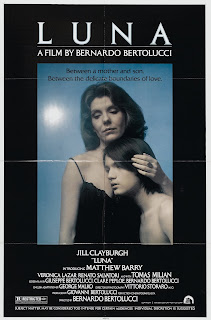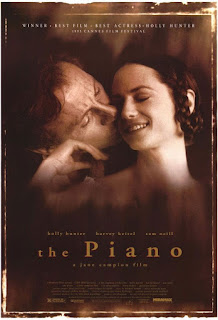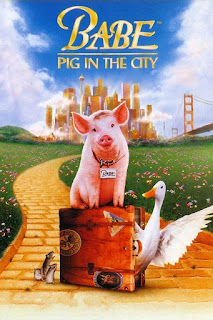August 8th: LUNA (Bernardo Bertolucci, 1979)
NOTE: This film will be projected in the high-definition Blu-ray format.
After a family tragedy, an American opera singer takes her son to Rome and buries herself in work while he finds more dangerous distractions.
Born in Italy, Bernardo Bertolucci originally planned to be a poet like his father, but found himself assisting revered director Pier Paolo Pasolini on a feature film. Within a year, he was adapting a Pasolini story for a film he would direct himself. Influenced by the current French New Wave more than Italian neo-realism, his early works were overtly political but also heavily stylized. His international breakthrough came with 1970's The Conformist, also his first of eight films with cinematographer Vittorio Storaro, which was praised by critics and fellow filmmakers for its bold visual style.
After the controversial Last Tango in Paris and the Italian communist epic 1900, Bertolucci turned inward after spending time in therapy, electing to abstractly explore his relationship with his mother after several films dealing with father-son relationships. He co-wrote a script with his wife, Clare Peploe, and his playwright brother Giuseppe, drawing from childhood recollections as well as Freudian and mythological elements.
Local producers were concerned at some of the sexual content of the script, which included incest, especially considering Bertolucci's previous trouble with censors. He sought out a bigger acting name to remedy this trouble, originally offering the lead role to Norwegian actress Liv Ullmann, star of numerous Ingmar Bergman films, who declined. After seeing American actress Jill Clayburgh in Paul Mazursky's film An Unmarried Woman, for which she received an Oscar nomination, Bertolucci had found what he was looking for. Wanting to cast someone from the same country as her son, he found the young Matthew Barry, who had appeared only on stage and television and would be making his big screen debut. Also appearing are Fred Gwynne (TV's The Munsters and My Cousin Vinny), a young Roberto Benigni, and veteran Alida Valli (The Third Man, Suspiria).
The film was shot on location in Rome, with some scenes in Brooklyn, New York, and Bertolucci's childhood home of Parma, Italy. Returning behind the camera and fresh off working on Apocalypse Now was Storaro, who collaborated with the director on a particular look for the Rome footage that was meant to conjure images of the Middle East, Egypt in particular.
For the film's music, Bertolucci had considered relying again on fellow bright light Ennio Morricone, who had scored 1900, but decided to primarily use opera pieces by Verdi. Morricone would write a small theme for the opening scene and credits.
Luna premiered as the opening selection of the New York Film Festival. It was met with mixed reviews, and failed to catch fire with audiences despite its taboo subject matter. Jill Clayburgh received a Golden Globe nomination for her performance. Never released on DVD in the United States and rarely screened, the film was restored in 2016 and finally available to a wider audience in a high quality format.
Running time is 2 hrs, 20 min.










Comments
Post a Comment